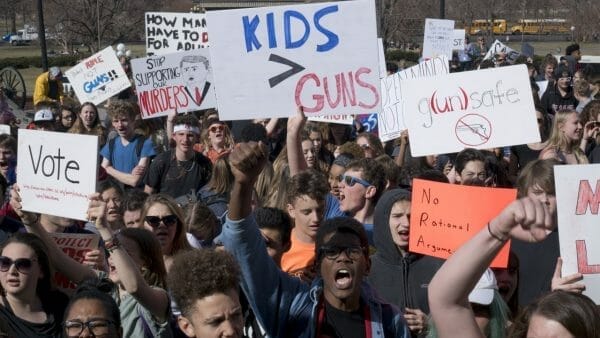
Fayetteville, AR –-(Ammoland.com)- “How do you feel?” is a question that perplexes the resurrected Spock in Star Trek IV: The Voyage Home, but it is a query that is the obsession of gun control advocates. They phrase things differently, of course. For them, the word is empathy, and in their view, we who support gun rights are lacking in that quality.
Empathy is a problematic word, since the similar word, sympathy, blends into the former’s meaning. The distinction is important, however, since the definitions of the two words get at the core of the debate over gun rights and gun violence in America.
To use another Star Trek reference, Counselor Troi is an empath. She has the ability to get inside the mind of another, to feel the world through that person’s emotions. Someone with empathy feels with others, understands what it is to be them. By contrast, sympathy is the capacity to feel for others, usually feeling sorrow over the suffering that others endure. But also, to the confusion of the language’s speakers, sympathy can mean an identification with an ideology or a group of people.
Which one is relevant with regard to the role of guns in America? Both, in fact, and more on that in a moment, but empathy is the one that gun control advocates prefer. I’ve discussed the article by David Brooks in The New York Times that suggests that if people on his side would only show some respect and attempt at some understanding of those of us who value gun rights, we’d be willing to give up those rights. Or perhaps we’d just feel better about people who yearn to curtail those rights, and all of us would feel together. Neil Steinberg, a columnist for the Chicago Sun Times, tells a story about hearing gunfire in the wilderness while hiking near a range and goes on to say that to achieve gun control—he calls it “commonsense gun regulation” and thus commits the fallacy of begging the question—we need to be won over “to the idea of a unified, rational American nation, caring for each other, addressing problems for the common good, and then we can talk about gun control.”
Of course, Brooks and Steinberg don’t really want to empathize with us. The latter mocks us as paranoid and racially insensitive. He is willing to allow that shooting firearms at a range is fun, though that isn’t a sufficient reason for refusing to go along with his schemes.
To put it another way, to the advocate of gun control, we’re vicious sociopaths who won’t feel for the children. Except that would be a lack of sympathy. Or it’s empathy if our problem is that we won’t put ourselves into the mind of someone in a mass shooting and agree to surrender rights as a result.
Which is to say, the thinking of people who seek to curtail rights is muddled. Strictly speaking, empathy with persons who have been at the scene of a mass shooting is impossible for anyone who has not been on the receiving end of gunfire, and in a society in which violence is steadily on the decline, it is increasingly difficult for most of us to feel what it is like to be the victim of violent crime.
What we can do is work on things that will reduce violence: funding schools at levels that would actually leave no child behind, ending the war on drugs, and treating threats of violence seriously, for example.
To say that we who support gun rights do so out of a lack of pathos for victims of violence is an assertion that requires evidence. The mere support for gun rights is not that evidence. I, for one, want to do the things that would make life better for all of us. But even at risk of being called unfeeling, I will not surrender our rights.
About Greg Camp
Greg Camp has taught English composition and literature since 1998 and is the author of six books, including a western, The Willing Spirit, and Each One, Teach One, with Ranjit Singh on gun politics in America. His books can be found on Amazon. He tweets @gregcampnc.
